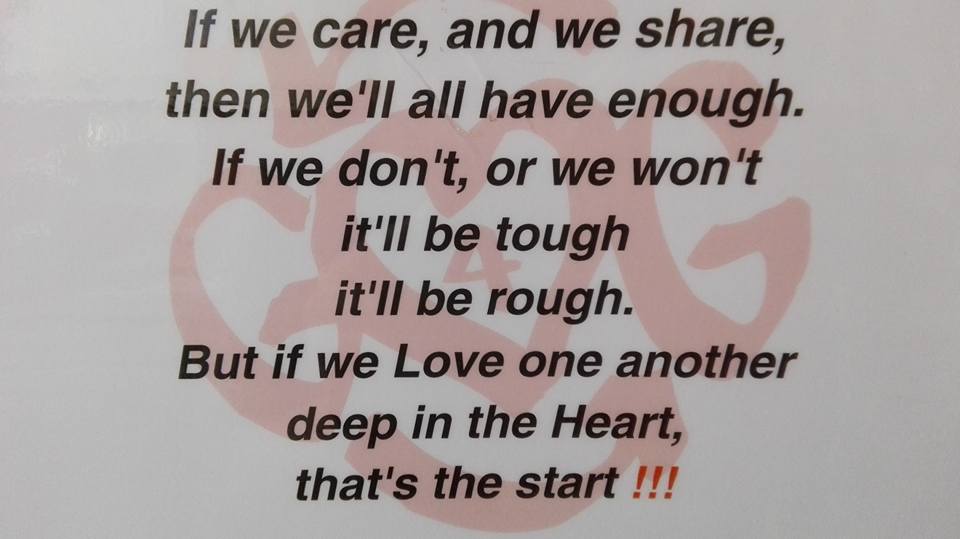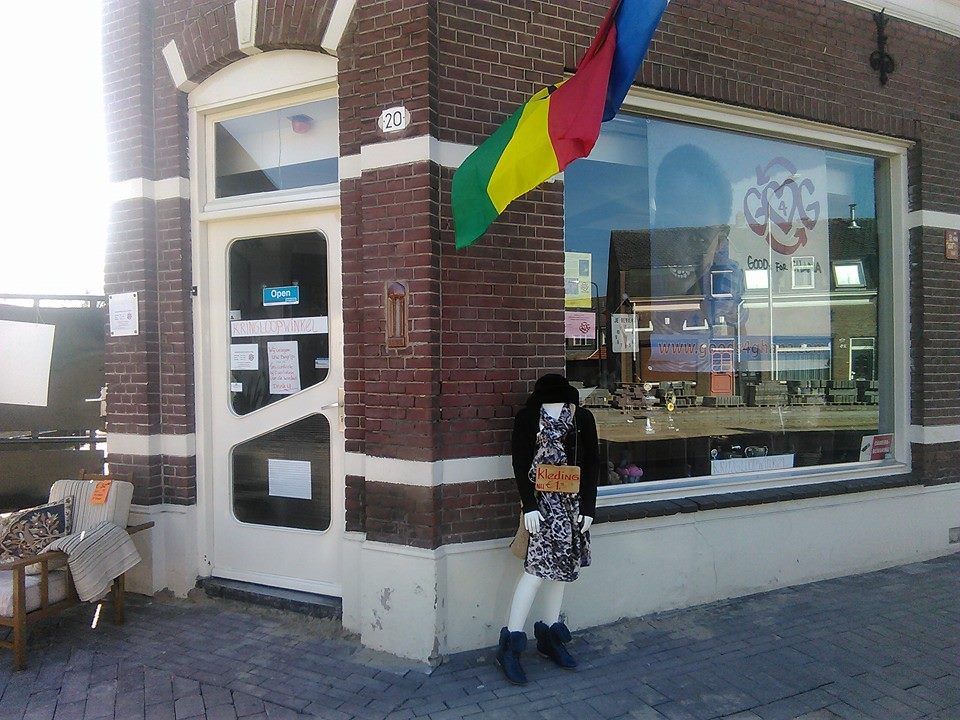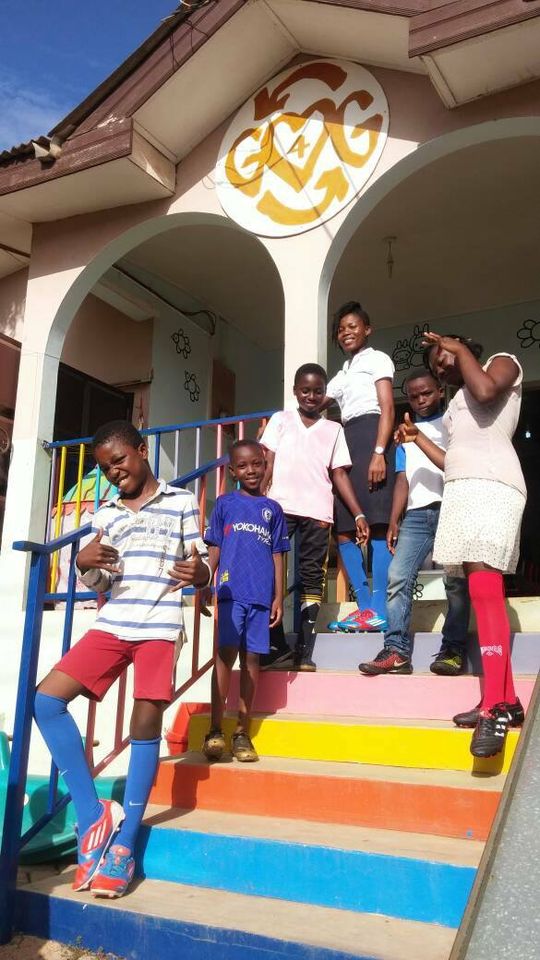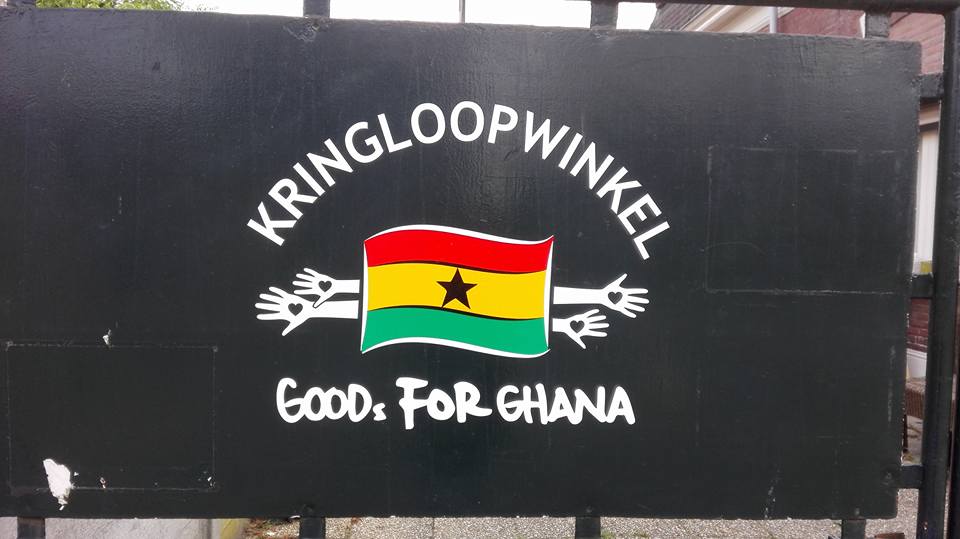
GOODs for GHANA is about a street away from my home. I pass by it every day on my commute from Tilburg to Leiden. Whenever the neighborhood has things to pawn off the G4G thrift shop is happy to take them in. While presumably most passers-by are indifferent about a Ghanaian flag flying among our own off-brand Swedish flags, the story of GOODs for GHANA is much more than meets the eye and goes back a storied seven years. On their Facebook page the two initiators Mrs. Dankers and Mrs. van ‘t Hullenaar, a mother and daughter, exclaim in fervently enthusiastic terms that their charitable NGO is a work of mutual collaboration between the Netherlands and Ghana which operates on monthly donations and the proceeds of their Tilburg-based shop. The two ladies are working to raise funds to assist Ghana’s Department of Social Welfare in helping orphans and special-needs children in Accra. Of course, simply visiting their shop does not provide you with such a comprehensive overview of their history and operations, so this blog serves as both an introduction to this little patch of Ghana in the Netherlands and as an archaeology of their digital footprint.

Inside G4G are numerous bags and pieces of cloth from Ghana, mixed in with the used goods. The previous tenant of the building the shop is in was a butcher which now provides the shop with an oven and plenty of room that is transformed into a social space for volunteers. Not only the shop itself is packed with goods, the two garages behind the building have been stuffed with things as well, all soon-to-be proceeds for the children of West-Africa. In the sparse amount of interviews G4G conducted with the local Stadsnieuws Mrs. van ‘t Hullenaar explains that her daughter, who has “lost her heart to and in Ghana” has a Ghanaian boyfriend, an adopted Ghanaian son and has been teaching at an elementary school she founded in Accra for the past 4 years. She mentions the importance of African self-reliance and thinking in long-term solutions rather than attempting to simply throw money at Ghana’s social issues.

A surprising discovery I made when researching G4G is their connection with the Forever Family NGO and by extension the United States. G4G is listed as a “mission” on Facebook and the title of this blog is the last sentence of their mission statement, in one of the articles from Stadsnieuws Mrs. Dankers also mentions teaching Ghanaian orphans English to mitigate the effects of a culture shock when these children are adopted by families from the US and a blog by a Christian family from America mentions adopting two children from Ghana with the help of (among others) G4G. This blog espouses a lot of evangelical Christian rhetoric along with a video which describes G4G’s compound in Ghana as a “more traditional home setting meant for transitions”. Judging by this fact it would appear that there is an entire alternate side to G4G’s coin that is impossible to discern by only examining their presence in the Netherlands.
That being said, an organization that connects two continents in such a way as G4G does is always bound to have a certain duality to it. On the one hand you have the shop in Tilburg with its own locality and on the other you have their outpost in Ghana, effectively a means and an end. Over the past seven years G4G has expanded from a small-time charity project to include a school, a guesthouse and an orphanage in West Africa from earnings primarily generated through self-reliance. Their rejection of aloof monetarism is, in my opinion, very admirable. Projects like G4G contribute in a positive way to Africa and Europe by encouraging direct cooperation and bypassing the typical business conglomerates that are more interested in increasing their own influence than in helping Africa develop itself.



Mirjam de Bruijn
September 23, 2020 (19:57)
Nice blog, not really ethnography, more research based in the sense of targeting; less observation?
Mirjam de Bruijn
September 24, 2020 (06:43)
Sorry, I was a bit too quick with my comments, went through it again and really like the description; this invites for more research as well; will you follow up on the organization and the family? it seems an interesting ‘field’ for the exercises and the method clinic.
Jochem Scheelings
September 26, 2020 (12:30)
Hello Dr. de Bruijn,
As of writing this blog I have discovered that G4G has officially ceased their African operations some time in 2019. The shop is still there and all the Africana they had on display is too, but they no longer have any facillities in Ghana. I am therefore afraid that further research into their organisation would not be very relevant, besides as an excercise in tracing their footprint in Africa.